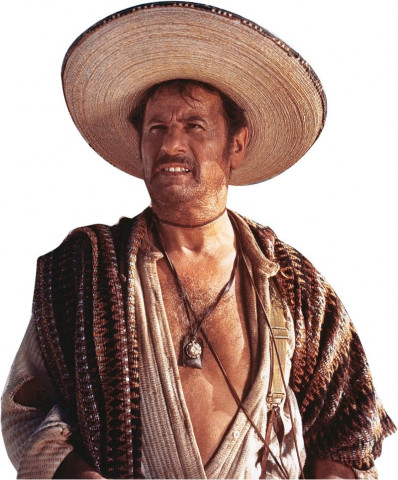The magnificent Eli Wallach passes away
An early practitioner of method acting, the actor earned his spurs both on stage and screen.

“You have the gift for life, Rosylyn. The rest of us, we’re just looking for a place to hide and watch it all go by,” said Eli Wallach as Guido in the Marilyn Monroe-starrer The Misfits (1961). But his glorious career is testament to the fact that his life was anything but stagnant.
Leaving behind an indelible mark, the actor passed away on June 28 at the age of 98, reported the New York Times. His daughter Katherine confirmed his death. The circumstances of his death were not immediately known, and representatives for Wallach did not instantly return requests for comment.
With his contributions to film, television and stage spanning over 40 years, Wallach was a performer in his own right. Wallach played a multitude of roles on stage and screen, ranging from his depiction of Berenger in a 1961 production of Eugène Ionesco’s play Rhinoceros to a Mafia don in The Godfather: Part III.
The first film in which Wallach acted was Baby Doll (1956), in which he depicted the role of Silva Vacarro, a Sicilian émigré. An early practitioner of method acting, he made a lasting impression as the scuzzy bandit Tuco Ramirez (the ‘Ugly’) opposite Clint Eastwood in Sergio Leone’s film The Good, the Bad and the Ugly (1966), according to Reuters.
Years later the release of The Good, the Bad and the Ugly, Wallach said strangers would recognise him and start whistling the distinctive theme from the film. Wallach, who was still making movies into his 90s, graduated from the University of Texas, where he picked up the horseback-riding skills that would serve him well in later cowboy roles, and studied acting at the Neighbourhood Playhouse Actors Studio before World War II broke out.
Having grown up, the son of Polish Jewish immigrants in an Italian-dominated neighbourhood in New York, Wallach might have seemed like an unlikely cowboy, but some of his best work was in Westerns. Many critics thought his definitive role was Calvera, the flamboyant, sinister Mexican bandit chief in The Magnificent Seven. Interestingly, the film was a Hollywood remake of the Japanese film Seven Samurai and later, which the Bollywood film Sholay (1975) also drew from.
Despite his invaluable contribution to film, Wallach was never nominated for an Academy Award, reported the New York Times. But in November 2010, less than a month before his 95th birthday, the Academy of Motion Picture Arts and Sciences presented him with an honorary Oscar, acknowledging him as “the quintessential chameleon, effortlessly inhabiting a wide range of characters, while putting his inimitable stamp on every role.”
Of Wallach’s stints in television, one of the most prominent is his role in the 1974 production of Clifford Odets’ Paradise Lost.
Wallach made his Broadway debut in 1945 a play titled Skydrift. In Tennessee Williams’ The Rose Tattoo, he played the role of a truck driver named Alvaro Mangiacavallo, for which he won a Tony Award. Wallach and his wife, stage actor Anne Jackson emerged as one of best acting couples in American theatre. But films remained the primary source of income for them. “For actors, movies are a means to an end,” said Wallach in an interview with the New York Times in 1973. “I go and get on a horse in Spain for 10 weeks and I have enough cushion to come back and do a play.”
However, he always held onto theatre and shared that he could never imagine leaving it. In an interview with the Times in 1997, he said, “What else am I going to do? I love to act.”
Here are five of Eli Wallach’s most notable films:
Baby Doll (1956)
The Magnificent Seven (1960)
The Good, the Bad and the Ugly (1966)
How to Steal a Million (1966)
The Godfather Part III (1990)
Published in The Express Tribune, June 26th, 2014.
Like Life & Style on Facebook, follow @ETLifeandStyle on Twitter for the latest in fashion, gossip and entertainment.



















COMMENTS
Comments are moderated and generally will be posted if they are on-topic and not abusive.
For more information, please see our Comments FAQ